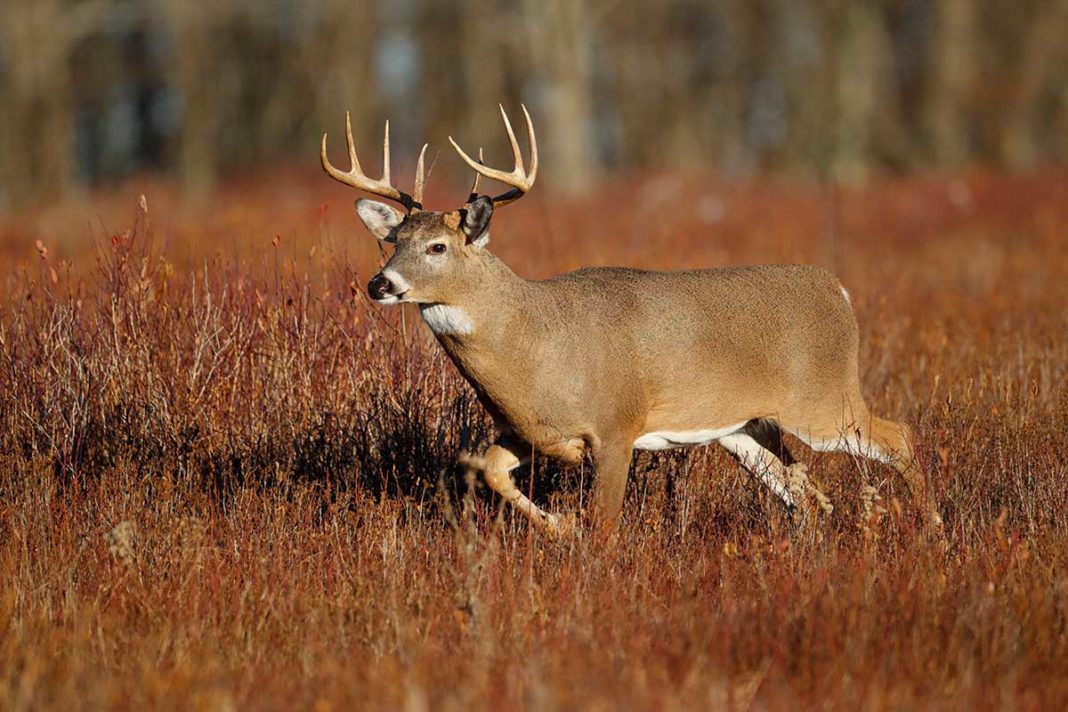Must also report unsuccessful hunts
ONTARIO – Ontario hunters who fail to submit their mandatory hunter reports will now face an automatic fine. A decision on this was announced by the Ministry of Northern Development, Mines, Natural Resources and Forestry on the environment bill of rights registry on December 21, 2021. This followed public consultation which was open from July 9-August 23, 2021.
“The ministry was doing pretty good in terms of response from hunters to the mandatory hunting reports,” said Roy Polsky, chair of the Ontario Federation of Anglers and Hunters Zone D (which includes Manitoulin Island). “The fine that they are putting in place for failing to report is not very much. I think the ministry didn’t want to impose a higher fine, they just want to make people aware of how important it is for hunters to submit a mandatory hunter report.”
“I think it is probably going to help with an increase in the number of hunters that will submit a mandatory hunter report,” said Mr. Polsky. “And any type of reporting is good to help with the management of, for instance, the deer populations. Manitoulin Island has, in the past, had deer check points held during the hunt season, but probably two-thirds of the people leaving the Island didn’t stop to have their deer inspected (which was on a voluntary basis). And for people on the Island, no one would have any idea on how many deer were taken unless the mandatory hunter reports were submitted. With the additional measures being taken, it should mean providing the ministry a better understanding of deer populations and other animals on the Island.”
“A decision has been made to implement an automatic financial penalty as part of a graduated penalty approach for hunters who fail to submit their mandatory hunter report(s). This penalty is an additional tool to promote hunter reporting compliance and improve reporting data used to make wildlife management decisions,” the EBR states.
The regulation was filed by the registrar of regulations on November 26, 2021 and will come into force on March 1, 2022 ahead of the spring 2022 hunting seasons.
The ministry EBR decision noted, “consultations prior to the implementation of mandatory hunter reporting in 2019 indicates that hunters and stakeholders are supportive of tools to encourage compliance. Comments on this proposal were mixed. Some were generally opposed to the penalty, some indicated support for the proposal to implement a more moderate compliance tool and others preferred a more severe consequence to encourage hunters to report as required. Comments which provided suggestions for the fee amount offered support for the proposed amount or a preference for a higher fee to best achieve compliance.”
“Some (respondents) indicated concern that well-intentioned hunters may receive a penalty for forgetting to report,” the ministry decision reads. “We will maintain a process to ensure the fee can be waived in certain, limited circumstances where a hunter does not report for reasons beyond their control. Additionally, the ministry is committed to providing regular email reminders for those hunters who have provided a valid email address in the Fish and Wildlife Licencing Service and communicating reporting requirements and deadlines in the annual hunting regulations summary.”
“The development of the graduated penalty system and the fee amount was chosen based on feedback from consultation and information from other jurisdictions,” the ministry reports. “The $25 penalty amount is intended to offer a moderate, balanced approach to promote compliance. The existing prevent-from-purchase penalty is maintained to apply for a second consecutive offence for each species as part of the graduated penalty framework.”
Hunters who fail to report or who provide false or misleading information are currently subject to penalties, including fines and possible restrictions on the ability to purchaser a licence or tag the following year (if they have not submitted the mandatory hunter report).
Mandatory hunter reporting is important for managing wildlife in Ontario. It specifically helps us monitor wildlife populations, set tag quotas and determine the availability of additional tags, make changes to seasons and bag limits and inform management policies, the ministry notes.
“All hunters who purchase or are issued a tag to hunt elk, deer, bear, wild turkey and wolf/coyote (in wildlife management units where a tag is required) and any hunter issued a licence to hunt moose must complete a hunter report. Hunters are required to complete a hunter report even if they did not participate in the hunt or harvest an animal. Generally, reports must be submitted within 14 days following the end of the last hunting season for that species,” the ministry decision says. It pointed out, “in 2020, the ministry observed an 84 percent compliance rate across all species. There were approximately 60,000 non-compliant reports (approximately 16 percent). Increased hunter reporting compliance leads to improved data and may lead to increased opportunities for hunters in some areas.”
“The anticipated outcome of the (decision) is that compliance rates with hunter reporting requirement will continue to improve and are maintained over time at a high level. This would provide improved reporting information to support wildlife management.
“You must complete a hunter report form if you purchase or are issued a tag to hunt elk, deer, bear, wild turkey or wolf/coyote (in wildlife management units where a tag is required); were issued a licence to hunt moose,” the ministry decision reads.





